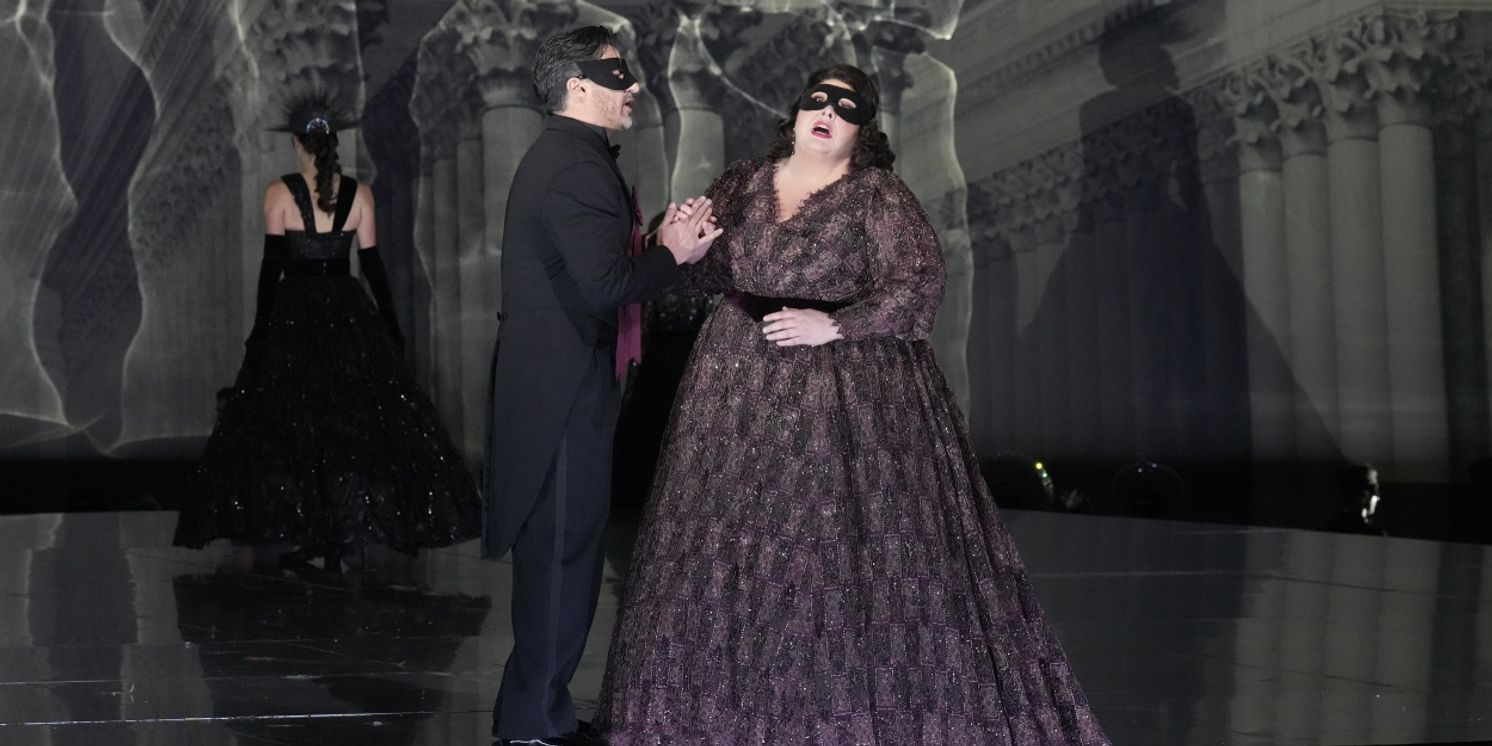Review: Met Revival of BALLO IN MASCHERA Opens in Alden Production
Performance Headlines Kelsey, Meade and Castronovo under Rizzi’s Baton

One of the troubles of being a major institution like the Met is that when they produce a new production of a major opera--and Verdi’s UN BALLO IN MASCHERA, which opened in revival the other night, certainly falls into that category--it’s an expensive undertaking. They put all their eggs in one basket--and occasionally the staging is DOA (dead on arrival). What to do? They can’t throw it out after a season and bring in a new view that might save the day--it’s simply too costly a proposition to replace it. With BALLO, they’re stuck with David Alden’s Icarus-laden.
It's true that sometimes a production can be pulled out of its death tumble, with a new cast or simply time making the absolutely awful suddenly make sense. In the case of the current run of the opera, with Angela Meade, Charles Castronovo and Quinn Kelsey heading the cast, even good and sometimes inspired singing can’t save the day. Alden’s take is simply too laden with concept for it to breathe.
Let’s talk about the good news. With baritone Kelsey singing Count Anckarstrom, the company has the real deal as a Verdi singer and he sang gloriously in the performance I saw. He’s the best friend of the king (Castronovo) and, unfortunately, husband of a woman (Meade’s Amelia) who’s in love with another man (also the king). He does both aspects of the role splendidly and the Met is lucky to have him. He did an exciting performance of his big moment in Act III, “Eri tu che macchiavi quell’anima.”
The top featured singers happily brought some emotion and/or charm to their roles. Mezzo Olesya Petrova as the fortuneteller Ulrica brought substantial voice and presence, though outfitted more for a funeral than as a soothsayer foreseeing the murder of the king. Unfortunately, she disappears too quickly in the opera for her smoky, lush voice to liven things up. Her counterpart was soubrette Liv Redpath, in her Met debut, as the page Oscar, who is a peppy accent to the action. She’s not really vital to the story, except to be charming and lively in voice and action, particularly in comparison to everyone else, and she did that extremely well.
Carlo Rizzi and the Met orchestra and the grand Met chorus under Donald Palumbo were in fine form.
The other two leads had their moments but also their problems. Both Castronovo and Meade took a while to warm up; in his case, it’s a particular problem because he’s front and center right at the beginning of the piece. Once his voice had a chance to open up, he often produced an ideal tenor sound for this music, though sometimes it seemed a bit small for the far reaches of the giant opera house.
Meade, in general, fared better and she has a big voice when she wants it and certainly knows how to float a note. She did a fine job with her big Act III aria, “Morro ma prima in grazia.” But the two had no chemistry at all on stage; it was as if they were in different operas--different planets. Even in the grand Act II duet, “Teco io sto,” sank when it should have brought the house down, because they never looked at each other until the very last minute. It wasn’t just that: They had the notes, all right, but their voices never showed the passion that these characters are supposed to be feeling for one another.
My comments about Alden’s production must trickle down to the set designs by Paul Steinberg and Brigitte Reiffenstuel’s costumes. The less said about the choreography by Maxine Braham, the better.
Verdi’s UN BALLO IN MASCHERA will be performed through November 18, including two Saturday matinees on November 4 and 11 at 1pm and 12:30pm, respectively. For more information, see the Met’s website.
Photo: Charles Castronovo and Angela Meade. Credit: Ken Howard/Met Opera
Reader Reviews

Videos

